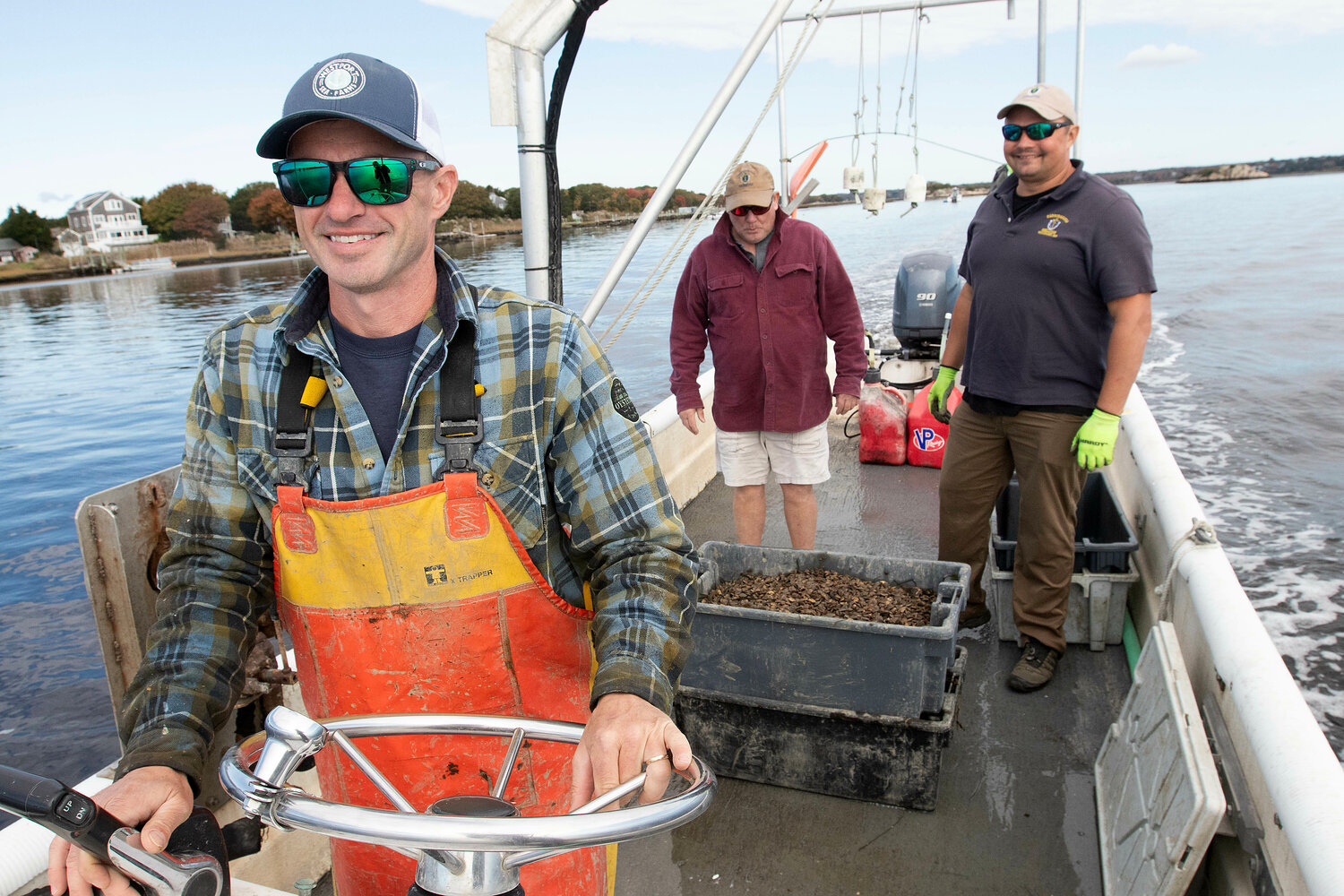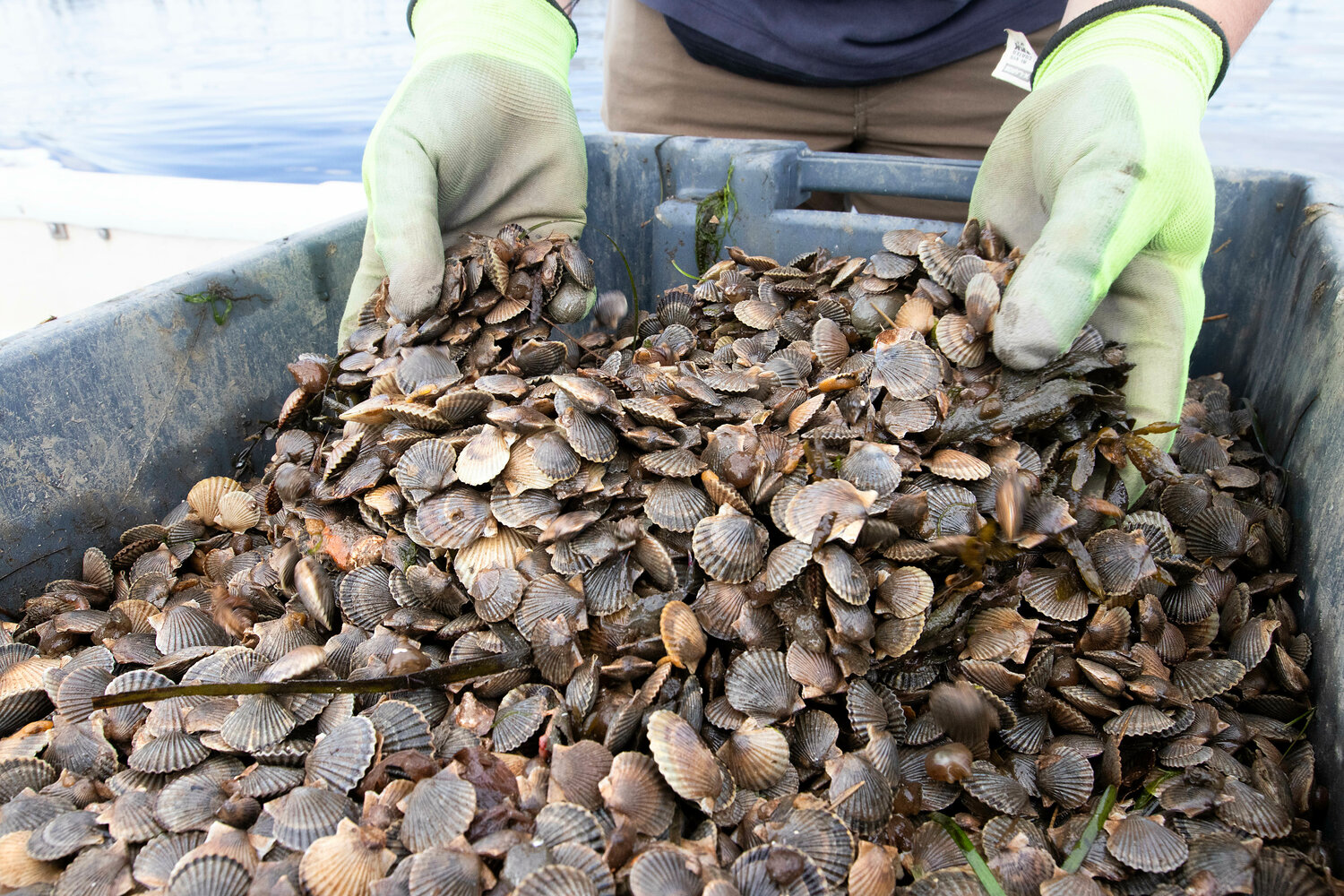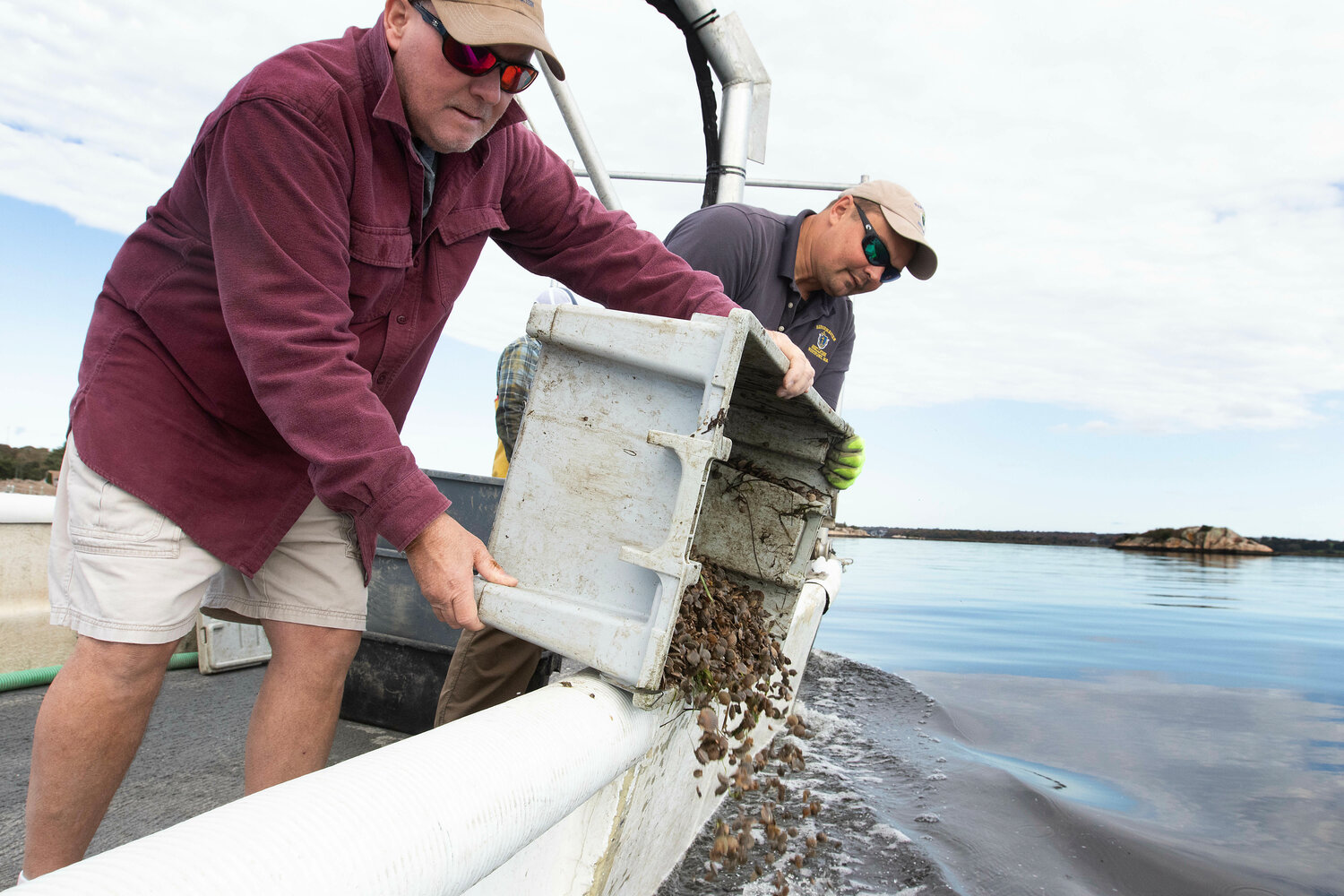Bay scallops return to Westport
Town releases 200,000 juvenile bay scallops grown from seed by Westport Sea Farms
When Kerian Fennelly was a kid, Westport Point was an exciting place if you were interested in fishing.
There were still lots of boats working out of the point and if you were young and wanted …
This item is available in full to subscribers.
Please log in to continue |
Register to post eventsIf you'd like to post an event to our calendar, you can create a free account by clicking here. Note that free accounts do not have access to our subscriber-only content. |
Day pass subscribers
Are you a day pass subscriber who needs to log in? Click here to continue.
Bay scallops return to Westport
Town releases 200,000 juvenile bay scallops grown from seed by Westport Sea Farms
When Kerian Fennelly was a kid, Westport Point was an exciting place if you were interested in fishing.
There were still lots of boats working out of the point and if you were young and wanted to try to make a living at it, it wasn’t hard to sign on with one, learn the business and way of life, and maybe find a calling.
Much of that opportunity is gone now but Fennelly, 41, wants it to return.
On Tuesday morning, Fennelly, co-owner of Westport Sea Farms along with his wife Kristin, loaded 200,000 year-old bay scallops into a center console, met marine services director Chris Leonard and his deputy Gary Tripp at the town dock, and went out to release them on the East Branch.
It was the first time in three or four years that Leonard and his department has seeded the river with bay scallops. With proceeds generated through the town’s shellfish propagation gift fund, Westport seeds the river every year with upwards of 5,000 bushels of quahogs, and spreads oyster seed every few years. He’d like to do scallops more often too “but they can be hard to find — not everybody has them.”
So when Fennelly contacted him earlier this year and proposed selling 100,000 year-old scallops to the town, Leonard signed on.
“I said, ‘Sure, let’s do it,’” Leonard said, proposing that the town purchase 100,000 for $10,000 in shellfish propagation funds.
“He said, ‘Well, we will match the town’s $10,000 with another $10,000’” worth of scallops, “so we were able to plant 200,000 of them," Leonard said.
With any luck, the tiny scallops will last the winter. And if that luck holds longer, Fennelly and Leonard hope those that survive will spawn next summer, helping to slowly repopulate the river with a stock that was once here in abundance.
Now the hard part — “We’ll wait and see,” Leonard said.
“I know 200,000 scallops can disappear into the ether like crazy, so I’m not making any predictions. But we are adding more to the stock, and more animals that are going to throw another spawn.”
“Nothing is guaranteed, but if you don’t try there’s no way you’ll know,” Fennelly said.
Diversification
Fennelly hopes the town’s scallops fare as well as those he’s recently started growing in the river and offshore at Westport Sea Farms’ 75-acre farm off Gooseberry Island.
Fennelly has been farming oysters since 2009 and started the oyster bar five years ago. Until this year he always stuck to oysters, growing Westport Sea Farms' Riptide and Taber Point varieties in its three-acre East Branch farm and its Beach Plum oyster over 75 acres of deeper water off Gooseberry.
As the oyster bar at the point is a seasonal business, as much as 95 percent of Westport Sea Farms' products are wholesaled and end up in restaurants across the country and overseas. But oyster farming is competitive, with 250 farms in the Commonwealth as opposed to just three scallop farming outfits across the state.
“The market during some periods of the year can get flooded, and it makes it difficult to sell our product,” Fennelly said. “I wanted to offset that reduced income and have another avenue where we can sell — when you put all your eggs in one basket, when stuff goes wrong it really goes wrong.”
A year or two ago, Fennelly started to notice bay scallops growing naturally on his oyster cages in numbers he hadn’t seen before. Over the winter he did some research on what it takes to grow them commercially, and wasn’t deterred by the literature that warned of scallops being notoriously hard to farm.
Instead, “we took a shot, ordered some seed” and planted them earlier this year in cages designed for scallops.
“Like any other type of farming, you’re going to have mortality, so you always buy more than you think you need. We were expecting half (of them) to grow ... but shockingly, everything survived. They’re doing tremendously,” particularly offshore.
This created a good problem — too many scallops. Fennelly could have sold his excess to other aquaculture outfits at the same price or higher, but decided to offer them to the town first, thinking the 200,000 could be the beginning of a solution to the problem he’s seen since he was a kid hanging out at the point.
“I’ve lived here my whole life and over the years I’ve seen the commercial industry at the point die. It’s sad. When I was a kid there was always a bunch of kids on the dock and it was a viable option to be a fisherman."
But as with terrestrial farms pushed out of business by high land prices, gentrification and a lack of opportunity, fishermen and women face the same pressure — "you don't see young kids hanging around anymore. It would be nice to see local kids view this as an option that could help them stay in their town.”
That return may still be a way down the road, but Fennelly said he hopes to continue to work with the town in the coming years, pushing a steady stream of bay scallops into the river and hoping they thrive and reproduce.
“There’s going to be a learning curve,” he said. “It’s not like the trout pond in Adamsville where they put in full grown trout and people catch them all. What Chris is trying to do is repopulate the stock with this seed and it takes time.”
As for his commercial crop, he is cautiously optimistic that he’ll have scallops to sell to the public around Christmas, and is looking into wholesale possibilities as well.












